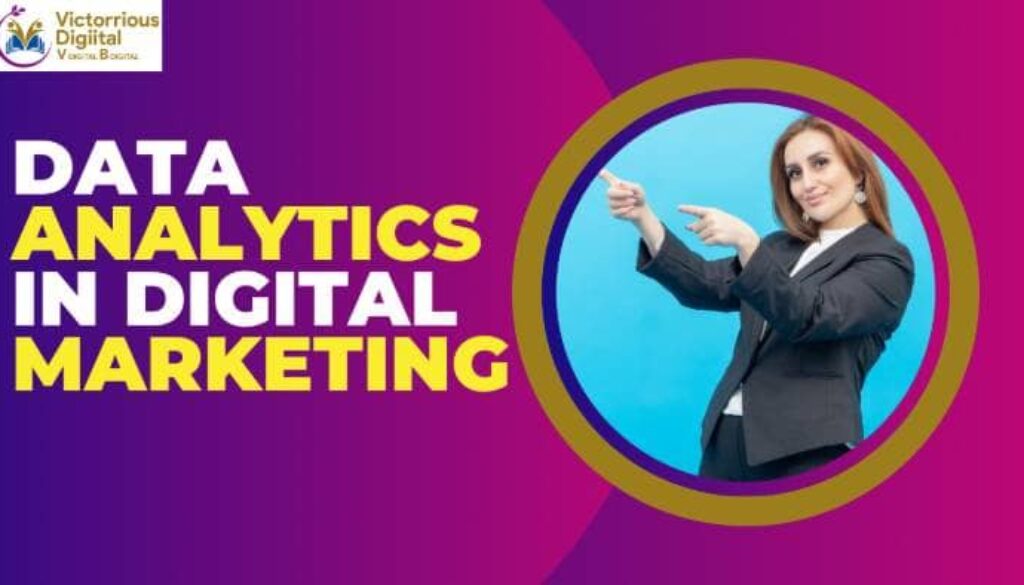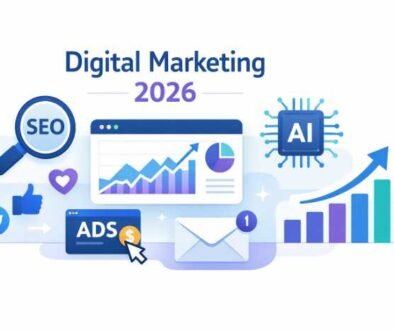Data Analytics in Digital Marketing
Table of Contents
How to Use Data Analytics to Improve Your Digital Marketing Campaigns
In today’s digital age, running a successful marketing campaign isn’t just about creativity—it’s about using the right data to make smart decisions. Data analytics plays a key role in improving digital marketing campaigns, helping businesses understand their customers, measure results, and plan better strategies.
If you are new to digital marketing or want to learn how data analytics can make a difference, this blog will guide you. You can also take Digital Marketing courses in Pune to gain hands-on experience and learn how to use data effectively in your campaigns.
What is Data Analytics?
Data analytics is the process of collecting, organizing, and analyzing information to understand patterns, trends, and insights. In digital marketing, it means using tools and techniques to study customer behavior, ad performance, and website activity.
For example, when you see how many people visited your website, clicked on an ad, or made a purchase, that’s data analytics in action. These insights help marketers make informed decisions to improve campaigns.
If this sounds interesting, you can join a Digital Marketing training institute in Pune to learn these skills in detail.
Why is Data Analytics Important in Digital Marketing?
Without data, marketing campaigns are like shooting arrows in the dark. Data analytics helps businesses:
- Understand Customer Behavior: Data shows how customers interact with your website, ads, and content. You can learn what they like, what they don’t, and what makes them buy.
- Save Time and Money: Analytics helps identify what’s working and what isn’t. This way, you don’t waste resources on strategies that don’t give results.
- Improve Campaign Performance: By analyzing the results of a campaign, you can make changes to improve its effectiveness.
- Personalize Marketing: With data, you can create campaigns tailored to specific audiences. For instance, showing ads to people based on their interests or past purchases.
Steps to Use Data Analytics for Digital Marketing Campaigns
- Set Clear Goals: Before diving into analytics, decide what you want to achieve. Your goals could include:
- Increasing website traffic
- Boosting sales
- Improving brand awareness
For example, if your goal is to get more visitors to your website, you’ll focus on metrics like page views and click-through rates.
- Choose the Right Tools: There are many tools available to track and analyze data. Some popular ones include:
- Google Analytics: Tracks website activity like traffic, time spent, and bounce rates.
- Social Media Insights: Platforms like Facebook and Instagram offer built-in analytics to measure engagement.
- Email Marketing Tools: Platforms like Mailchimp help track email open rates and clicks.
Joining Digital Marketing courses in Pune with placement can teach you how to use these tools effectively and can help you kick start your career.
- Understand Your Audience: Use analytics to learn about your audience’s:
- Age, location, and gender
- Interests and preferences
- Online habits (e.g., the time they are most active)
For example, if your audience is mostly young adults, you might focus more on social media platforms like Instagram or TikTok.
- Track the Right Metrics: It’s important to track the right numbers, also known as Key Performance Indicators (KPIs). Some common KPIs in digital marketing include:
- Website Traffic: How many people visit your site.
- Bounce Rate: The percentage of visitors who leave your site without exploring further.
- Conversion Rate: The percentage of visitors who take the desired action, like making a purchase.
- Use A/B Testing: A/B testing is when you create two versions of something—like an email, ad, or webpage, and see which one performs better.
For example, one version might have a red “Buy Now” button, while the other has a blue one. Analytics will show you which version gets more clicks.
This simple method helps improve results over time.
- Analyze and Adjust: Once you have enough data, look for patterns and insights.
- Which ads are getting clicks?
- What type of content is most popular?
Use this information to adjust your strategy.
For example, if blog posts about Digital Marketing training institutes in Pune are getting more views, you might focus on creating similar content.
Benefits of Using Data Analytics
- Better Decision-Making: Data takes the guesswork out of marketing. You can rely on facts to decide what to do next.
- Increased ROI: By focusing on what works, you get better results for the money you spend.
- Personalized Campaigns: Analytics helps create campaigns that feel personal and relevant to your audience.
- Real-Time Insights: Many tools provide data in real-time, allowing you to make quick changes if needed.
Also Read : The Ultimate Guide to Google Ads With Examples
Challenges in Using Data Analytics
While data analytics is powerful, it comes with some challenges:
- Too Much Data: With so much information available, it can be overwhelming to decide what’s important.
- Learning the Tools: Tools like Google Analytics can seem complicated at first. Joining a Digital Marketing training institute in Pune can help you learn them step-by-step.
- Privacy Concerns: Using customer data requires following strict privacy rules. Businesses need to be careful about how they collect and use data.
- Keeping Up with Changes: Digital platforms often update their algorithms, which can affect analytics results.
Real-Life Example: Improving Campaigns with Data Analytics
Let’s take an example of a business running a campaign to promote Digital Marketing courses in Pune:
- The business sets a goal to increase sign-ups for their online courses.
- They use Google Analytics to see where website visitors are coming from—social media, search engines, or ads.
- They notice that most visitors leave the website without filling out the sign-up form.
- Using heatmap tools, they discover that the form is too long.
- They shorten the form, and sign-ups increase by 30%.
This is how data analytics can make a campaign more effective.
Why Learn Data Analytics for Digital Marketing?
In today’s competitive world, knowing how to use data analytics is a valuable skill for marketers. Whether you’re running your own business or working for a company, these skills can help you create smarter campaigns.
If you’re ready to learn, consider joining Digital Marketing courses in Pune with placement. These courses teach you how to collect and analyze data, use marketing tools, and create successful campaigns.
Conclusion
Data analytics is the backbone of modern digital marketing. It helps businesses understand their customers, improve campaigns, and achieve better results. From tracking website traffic to personalizing ads, data plays a crucial role at every step.
By mastering data analytics, you can take your digital marketing skills to the next level. Whether you’re new to this field or looking to upgrade your knowledge, enrolling in a Digital Marketing training institute in Pune can give you the hands-on experience you need. Start using data analytics today, and watch your marketing campaigns reach new heights!




